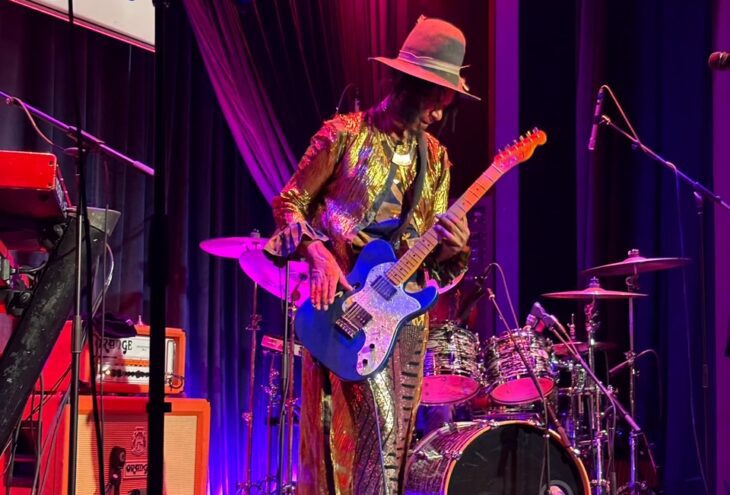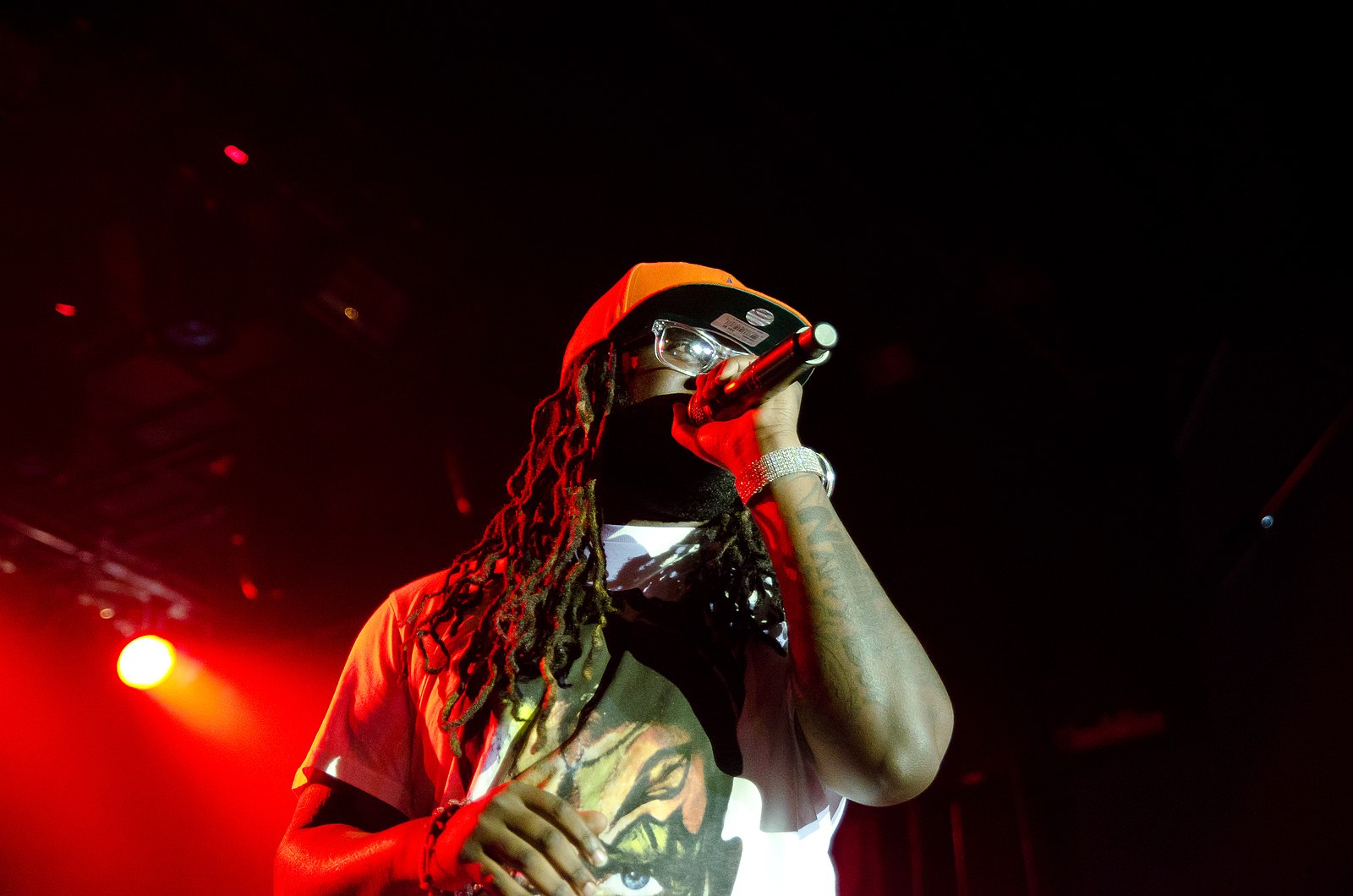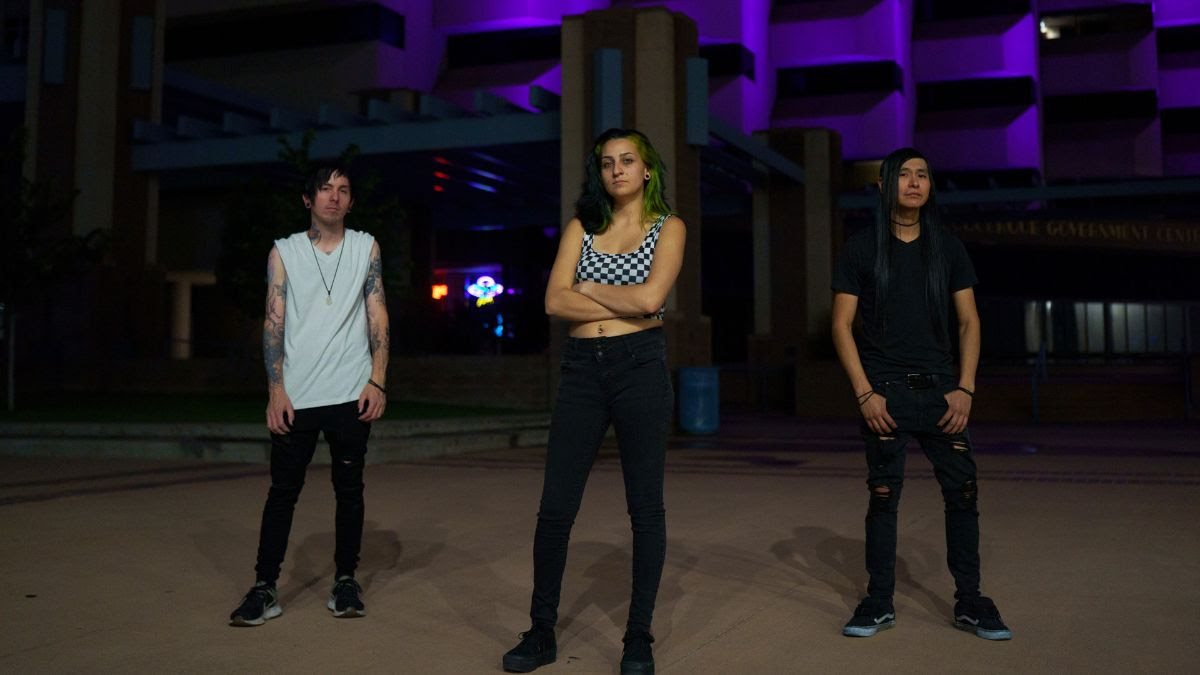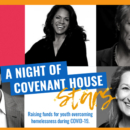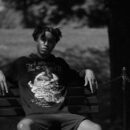Exactly a month after the global Blue Note Jazz Club brand finally opened its doors in Los Angeles, the three-time Grammy winning force of musical nature known as Fantastic Negrito swept in stage left, blue rhythm guitar slung over his shoulders, ready to take visceral, emotional, utterly willing prisoners while adorned in a metallic gold musical superhero cape, glittery striped gold pants and his trademark brown bucket hat with a hopeful white feather.
Beyond the hour-plus of his raw and gritty, ever simmering boundary blasting fusion of R&B, blues, rock, soul and funk (and let’s not forget the inspirations of gospel and African spiritual music) he calls “black roots music for everyone,” the mesmerizing, virtuosic singer and all around performer made the hip new club his personal, intimate living room, weaving through his 15 (or so) song set harsh truths about his life told via darkly humorous yet ultimately triumphant anecdotes. Anyone who wasn’t familiar with the man and his music coming in surely left feeling they had a new pal they could relate to and be inspired by – who offered them cathartic release and joy in equal fiery measure.
Longtime Fantastic Negrito fans know the basics about the resilience that defines his life and the many stops and starts in his musical career before his indie breakthrough under this moniker in the mid-2010s and shooting to stardom with his second album The Last Days of Oakland, which won the first of his Grammys for Best Contemporary Blues Album. Under his given name Xavier, he signed an early record deal with Prince’s former manager and then another with Interscope, which led to 1996 debut album The X Factor. A near fatal car crash in 1999 left him in a coma for three weeks, but he interpreted the harrowing experience as a blessing in disguise that “released” him from a contract he didn’t want to be in. When he recovered, he played in basement bands in the L.A. underground scene, exploring “afropunk,” ran a nightclub, became a legal cannabis farmer and, upon retiring from music in 2007, moved back to Oakland to get married and raise a family.
Eleven years after reinventing himself as Fantastic Negrito, he followed his haunting, physically dramatic performance of the throbbing, tribal “An Honest Man” by speaking several of those hard-hitting vulnerable truths: “I realized an honest man is something my father wasn’t. Some people go on ancestry.com and find out they’re related to serial killers. I was related to a habitual liar. It’s all right. I was institutionalized since I was 11.”
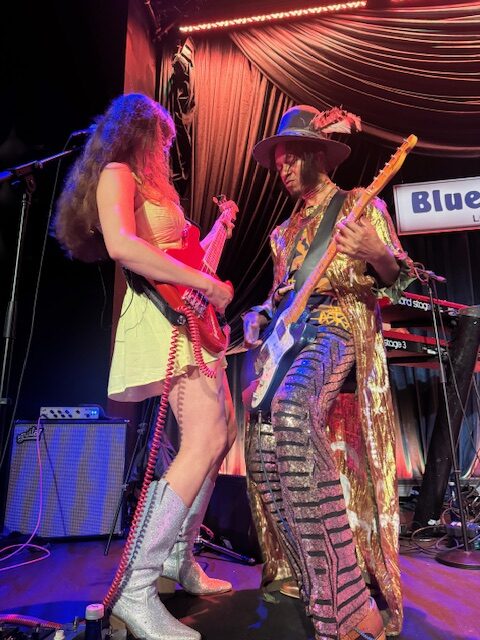
He followed with insight and a promise to self which we should all take to heart in this divisive sociopolitical age where stress is off the charts and misinformation abounds. “I wanted to take all that bullshit and turn it into good shit. I’m gonna take everything that traumatized me and make it work. Make something. Make a cake. Make a sandwich. Make a superhero suit. Make a baby. Make something with that trauma so that it’s useful.” The singer then introduced the equally searing and troubling, guttural soul confessional “Living with Strangers” by saying, “This is about growing up in foster care and fighting off a rapist named Fat Larry.”
When an audience member shouted, “F** Fat Larry,” Negrito didn’t miss a beat, joking, “That’s what Fat Larry wanted” to warm laughter from the crowd. The song was a powerful showcase for Negrito’s soaring falsetto, bassist Lily Stern (whose intense hypnotic throbbing underscored the darkness of the song) and lead guitarist Clark Sims, who ventured into a fiery, ominous riff on Black Sabbath’s “Iron Man” propelled by Stern and the intense drumming of James Small. A few tunes later, on the propulsive, quirkily titled “Beet Salad,” that rhythm section was also in full throttle mode in tandem with the retro sounds of fleet fingered keyboardist Bryan Simmons and Negrito’s hard jangling rhythm guitar.
That spirited jam set the table for the infectious, perfectly titled high octane singalong “Bullshit Anthem,” a track from Fantastic Negrito’s 2018 album Please Don’t Be Dead whose simple yet brilliant lyrics are a mantra personal to the artist yet pretty much sum up life in America in 2025 and offer sage advice on how to deal with it: “Take that bullshit and turn it into good shit.” His verses are like musical coping mechanisms: “Oh, I get knocked down, but I keep on fighting. . .keep on trying/Knock me down two or three times/I’ll get back up and keep on fighting.” He introduced the tune with a mix of humor and preacher-like intensity, implying spiritual significance and survival balanced by feel good fun – the second point emphasized when the tune wandered amiably into a stylistically compatible, delightfully funky twist on Sly Stone’s iconic “Thank You…”
Another emotional core experience of Fantastic Negrito’s show was the rootsy raw, slow simmering “In the Pines,” a folk song from the late 19th century about themes of death, betrayal, loneliness and suffering, with the pines symbolizing a dark, desolate place or state of mind where, as he sang over and over, “the sun don’t ever shine no more.” He introduced the piece by mentioning that he busked at a train station without permission, and his goal as an artist was to write about all the things that hurt me. He added that he recorded this song as a tribute to his brother who was killed at 14. The song has been recorded by everyone from Leadbelly to Nirvana, and both on record and live, it’s perfectly suited to the overall presentation of personal trauma and the backdrop of the Black experience in America that infuses Negrito’s multi-hued aesthetic.
A second essential example of this was the brooding, meditational gospel-blues-rock power ballad “Son of a Broken Man,” the title track to his 2024 album which, though he presented it late in the set, serves as the musical autobiography of his life and soul: “I’m the son of a broken man/Picked up the pieces and I survived” echoed later in the refrain “only the dreamers survive.” Fantastic Negrito could have wrapped the show with a bow right there, but they preferred to let the Blue Note audience leave with smiles on their face via the festive funk of his brand new “Good Feeling,” which he wrote just before going on his current tour, and the pumping psychedelic rocker “Plastic Hamburgers,” which previous critics have described as “a Lenny Kravitz/Chris Cornell mashup with a dirty, hollow-bodied guitar riff” and “blues with a punk attitude.”
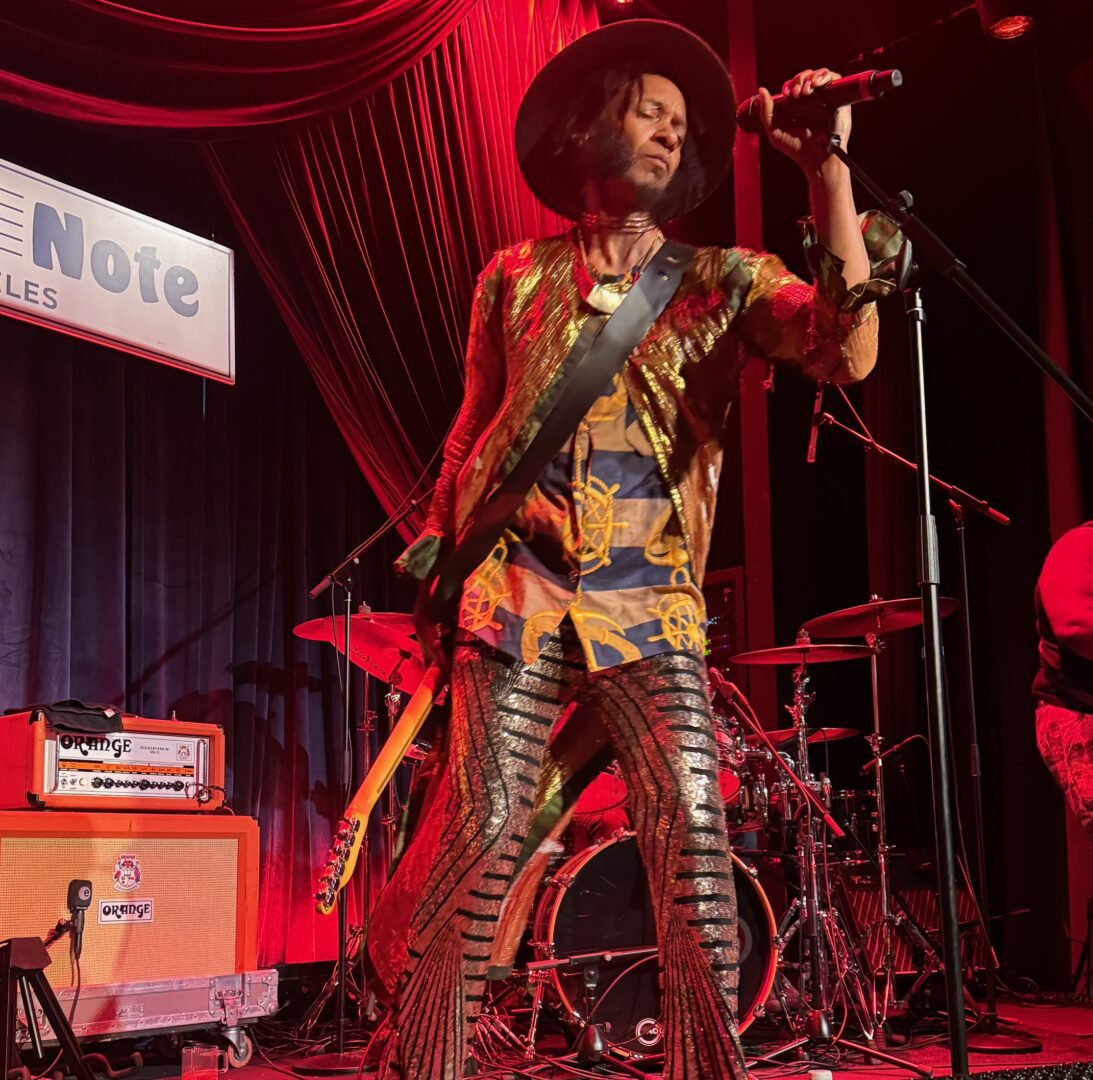
Besides performing a transcendent, heart, soul and thought-provoking set, Fantastic Negrito’s appearance at the new Blue Note Los Angeles bodes well for a venue that, like its predecessors around the world, may be rooted in jazz but is open to countless, innovative, jazz-adjacent artists offering crucial and relevant messages that meet the moment we’re living in.

